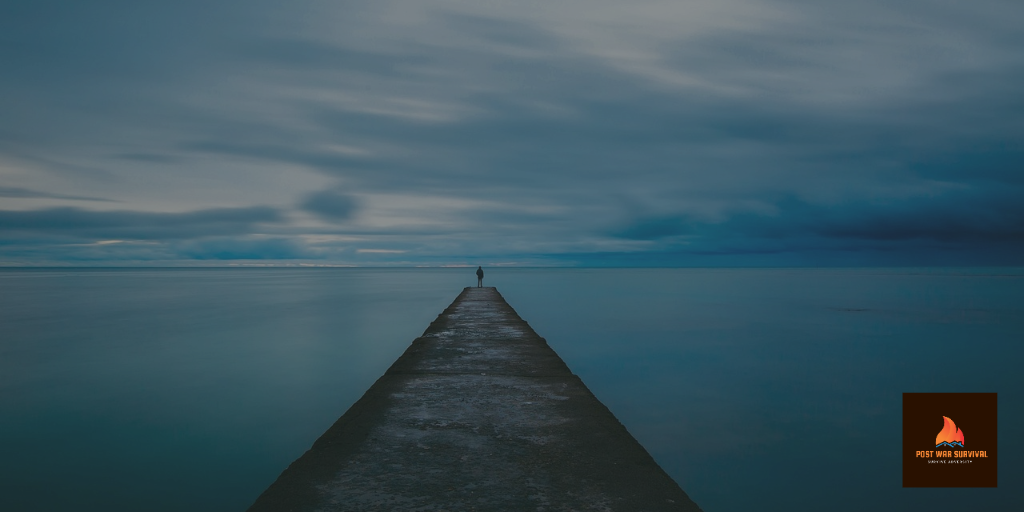This post may contain affiliate links. If you purchase through the links we may earn a commission on any sales at no additional cost to you.

In an uncertain world, being prepared for the worst is crucial, especially when facing challenges alone. This comprehensive guide will equip you with the knowledge and skills to survive and thrive in apocalyptic scenarios. Whether you’re a seasoned prepper or just starting, these strategies will help you become self-reliant and resilient.
Understanding the Importance of Solo Preparedness
When disaster strikes, you may find yourself alone and isolated from others. Being prepared to face challenges independently can mean the difference between survival and peril. Solo preparedness requires a unique mindset and skillset. It demands self-reliance, resourcefulness, and mental fortitude. By mastering these qualities, you’ll be better equipped to handle any situation that comes your way.
Building Your Survival Kit
A well-stocked survival kit is essential for anyone preparing to face apocalyptic scenarios alone. Your kit should include items for basic needs like food, water, shelter, and first aid. Consider including a multi-tool survival kit for versatility. Pack high-energy, non-perishable foods and water purification tablets or filters. Include a first aid kit, emergency blanket, and fire-starting materials. Don’t forget important medications and a battery-powered or hand-crank radio for information. Customize your kit based on your specific needs and potential scenarios you may face alone.
Mastering Survival Skills
When you’re alone in a crisis, your skills become your greatest asset. Learn basic survival techniques like fire-starting, water purification, and shelter-building. Practice these skills regularly to maintain proficiency. Develop your foraging and hunting abilities to secure food in the wild. Learn basic first aid and how to treat common injuries and illnesses. Master navigation techniques using maps, compasses, and natural landmarks. These skills will be invaluable when you’re alone and resources are scarce.
Creating a Safe Haven
Establishing a secure base is crucial when facing apocalyptic scenarios alone. Choose a location that’s defensible and away from potential threats. Fortify your shelter against intruders and natural disasters. Install a home security system for early warning. Create multiple escape routes and hiding spots within your safe haven. Stock your base with supplies to sustain you for extended periods. Consider alternative power sources like solar panels or generators. Remember, your safe haven should be a place where you can rest and recuperate alone.
Developing Mental Resilience
Surviving alone in apocalyptic conditions requires immense mental strength. Practice mindfulness and stress-management techniques to maintain emotional stability. Develop a positive mindset and focus on problem-solving rather than dwelling on challenges. Set small, achievable goals to maintain motivation and a sense of purpose. Keep a journal to process your thoughts and track your progress. Remember that mental resilience is just as important as physical preparedness when you’re alone.
Staying Informed and Connected
Even when alone, staying informed about your surroundings is crucial. Invest in a reliable emergency radio to receive important broadcasts. Learn to interpret weather patterns and natural signs to predict potential dangers. Develop a system for marking your territory and leaving messages for potential allies. Consider pre-arranged meeting points or communication methods with trusted individuals. While you may be alone, staying connected to information can be lifesaving.
Mastering Self-Defense
In a world where you’re alone, self-defense becomes paramount. Learn basic hand-to-hand combat techniques and how to use improvised weapons. Consider firearms training if legal and appropriate for your situation. Develop situational awareness to avoid potential conflicts. Practice de-escalation techniques to resolve confrontations without violence when possible. Remember, when you’re alone, avoiding conflict is often the best strategy.
Sustainable Living Practices
Long-term survival alone requires sustainable living practices. Learn to grow your own food through gardening or hydroponics. Develop water collection and purification systems for a steady supply. Master basic repair skills to maintain your equipment and shelter. Learn to preserve food through canning, drying, or smoking. Implement energy-efficient practices to conserve resources. These skills will help you thrive independently for extended periods.
Planning for Medical Emergencies
When facing medical emergencies alone, preparation is key. Stock up on essential medications and first aid supplies. Learn advanced first aid techniques, including wound care and fracture management. Study herbal remedies and alternative medicine for when conventional treatments are unavailable. Consider a comprehensive first aid course to enhance your skills. Remember, in apocalyptic scenarios, you may be your own medic.
Adapting to Environmental Challenges
Different environments present unique challenges when surviving alone. Learn to adapt to various climates and terrains. Master techniques for finding water in desert environments. Understand how to build shelters in extreme cold or heat. Learn to navigate dense forests or urban ruins safely. Develop skills for crossing rivers or scaling cliffs if necessary. Adaptability is crucial when facing diverse environmental challenges alone.
Conclusion
Preparing for apocalyptic scenarios is a daunting task, especially when considering the possibility of facing them independently. However, with the right mindset, skills, and preparation, you can significantly increase your chances of survival and even thrive in challenging conditions. Remember that preparedness is an ongoing process. Continuously update your knowledge, refine your skills, and adapt your strategies as needed. By embracing self-reliance and resilience, you’ll be ready to face whatever challenges the future may hold.
